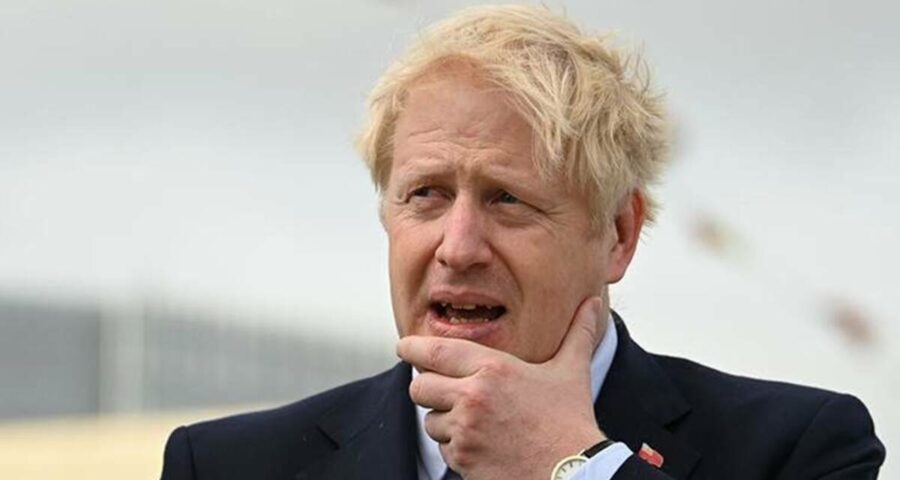UK unveils policy on ‘tilt to Indo-Pacific’
British Prime Minister Boris Johnson will travel to India at the end of April in what would be his first major overseas visit following Brexit, his office said on Tuesday.
Johnson was forced to cancel his trip to India as the chief guest of the Republic Day celebrations in January following a surge in Covid-19 cases in the UK, and had then promised to visit India before the G-7 summit in the UK in June. He has invited Prime Minister Narendra Modi to the G-7 summit.
Johnson’s office made an announcement of his India trip as it unveiled the “Integrated Review” of its security, defence, development and foreign policy where it set out a “tilt to the Indo-Pacific”.
India appears about 15 times in the review document, where it has been located in the context of the “deeper engagement” with the Indo-Pacific.
Under the sub-head “Indo-Pacific”, the Integrated Review said, “We will pursue deeper engagement in the Indo-Pacific in support of shared prosperity and regional stability, with stronger diplomatic and trading ties. This approach recognises the importance of powers in the region such as China, India and Japan and also extends to others including South Korea, Vietnam, Indonesia, Malaysia, Thailand, Singapore and the Philippines.”
On China, the Integrated Review has a measured and nuanced approach and tone. “We will do more to adapt to China’s growing impact on many aspects of our lives as it becomes more powerful in the world.”
“We will invest in enhanced China facing capabilities, through which we will develop a better understanding of China and its people, while improving our ability to respond to the systemic challenge that it poses to our security, prosperity and values – and those of our allies and partners. We will continue to pursue a positive trade and investment relationship with China, while ensuring our national security and values are protected. We will also cooperate with China in tackling transnational challenges such as climate change,” it said.
Stressing that the UK-India relationship is “already strong”, it said that “over the next ten years, we seek transformation in our cooperation across the full range of our shared interests”.
“India – as the largest democracy in the world – is an international actor of growing importance,” the Review document said.
As Commonwealth nations, it said, “we have strong cultural links: 1.5 million British nationals are of Indian origin; and we enjoy broad collaboration across the education sector”.
It said trade between the UK and India more than doubled between 2007 and 2019, investment relationship supports over half a million jobs in each other’s economies, and the UK is India’s second-biggest research partner.
“The ability to strike our own trade deals will allow us to grow our economic relationship further, including through increased bilateral investment flows. Our vision is for re-energised trade and investment, rooted in S&T and supporting levelling up in the UK and India alike; enhanced defence cooperation that brings a more secure Indian Ocean Region, building on the existing biannual Ministerial Defence Dialogues; and UK-India leadership to tackle global challenges like climate change, clean energy and global health.”
“We will take a major step towards achieving this vision in 2021 when we launch our Enhanced Trade Partnership with India as a roadmap to a potential comprehensive trade deal. This relationship will be underpinned by our largest single country diplomatic network anywhere in the world, with more than 800 staff spread across eleven posts,” it said.
It also said that “agreeing an Enhanced Trade Partnership with India” will be a “stepping stone towards a comprehensive trade deal”.
It underlined “our force for good agenda, promoting open societies and protecting public goods through conflict prevention, strong rule of law, respect for human rights and media freedoms, girls’ education and humanitarian response. We will also continue to deepen our people-to-people links, including through bilateral cultural seasons with Japan, Australia and India.”
Downing Street said Johnson will announce the creation of two new cross-government hubs — “a Situation Centre, based in the Cabinet Office, which will build on the lessons of the Covid pandemic to improve our use of data to anticipate and respond to future crises”.
“A Counter-Terrorism Operations Centre, which will significantly improve our ability to thwart terrorists, while also dealing with the actions of hostile states. It will bring together CT police, the intelligence agencies and the criminal justice system to coordinate the Government’s expertise and resources in a state-of-the-art facility to improve our speed of response to terrorist incidents,” it said.
In an op-ed published in The Times, Johnson wrote about India’s manufacturing capacity for Oxford AstraZeneca vaccine.
“That vaccine is safe and works extremely well, and now, only six months later, it is being made in multiple places from India to the US, as well as Britain, and it is being used around the world.”
Source: Read Full Article


